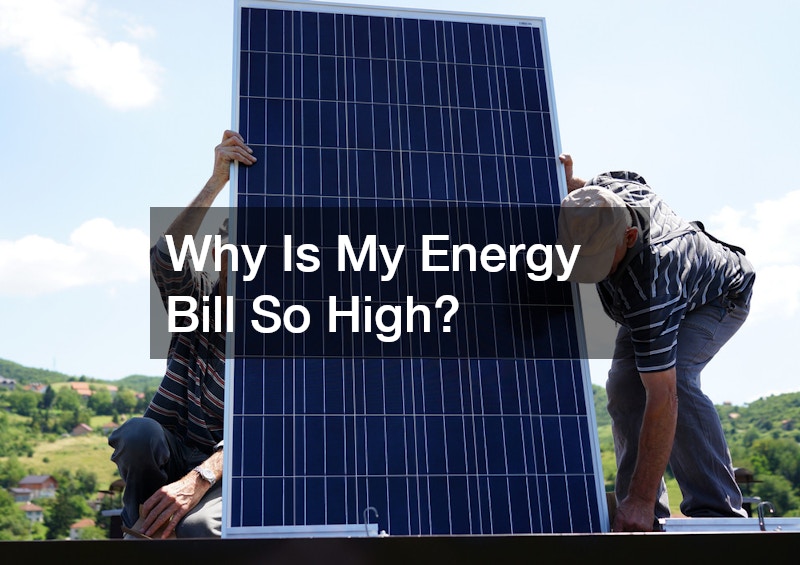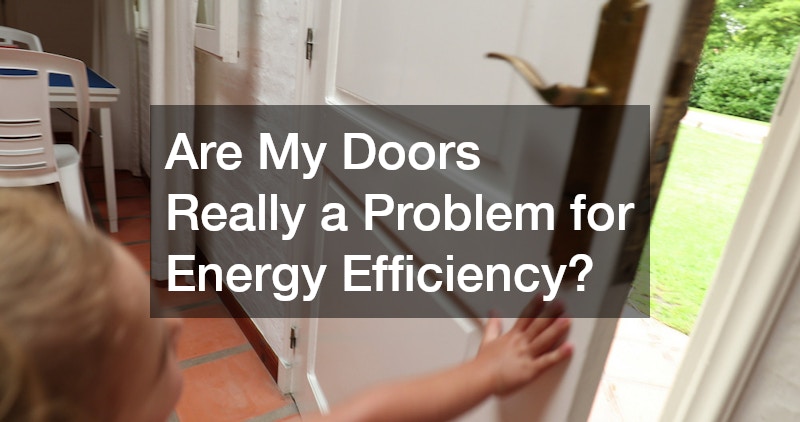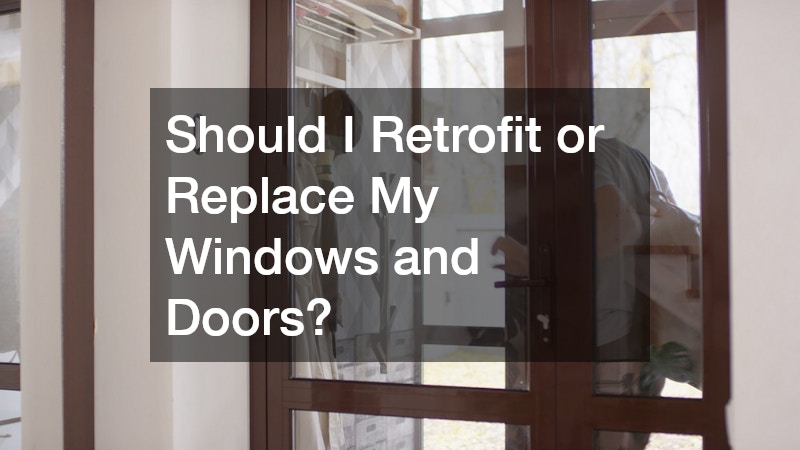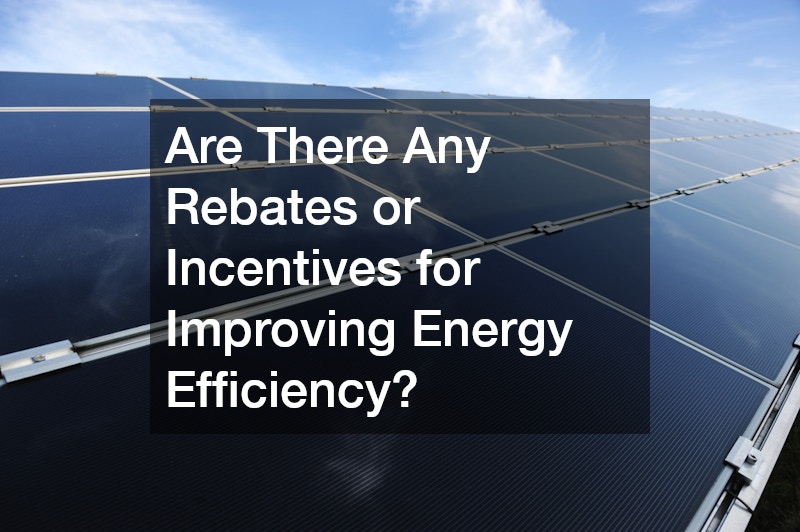Energy efficiency is a major concern for homeowners and business owners alike. High utility bills, uncomfortable indoor temperatures, and environmental impact often point to inefficiencies in key areas of a building: the HVAC system, windows, and doors. Each of these elements plays a significant role in maintaining your indoor comfort while keeping energy consumption in check.
Unfortunately, many people overlook their HVAC system, doors, and windows as major culprits of energy waste until it is too late. A poorly maintained HVAC system, aging windows, or drafty doors can quietly drain energy, increase costs, and reduce comfort.
In this article, we will explore how these components affect energy efficiency, identify common problems, and outline actionable solutions to help you save money and reduce your carbon footprint. We’ll also touch on modern technologies, maintenance tips, and professional services like AC repair service, HVAC contractors, ductless mini split heat pump installation, and window replacements that can improve your home’s efficiency.
Why Is My Energy Bill So High?

Many homeowners often ask, “Why is my energy bill so high even though I’m careful with usage?” The answer usually lies in hidden inefficiencies in your heating, ventilation, and air conditioning system, as well as your windows and doors.
Inefficient HVAC Systems
Your HVAC system is the backbone of indoor climate control, but outdated or malfunctioning systems can consume excessive energy. Older furnaces or air conditioning units often operate at lower efficiency ratings than newer models, meaning they work harder and longer to maintain the desired temperature.
This not only increases utility bills but also places additional strain on the system, leading to more frequent repairs. Calling an HVAC repair technician or HVAC contractors to assess your system can often reveal problems such as worn-out components, clogged filters, or refrigerant leaks that significantly impact efficiency.
In some cases, homeowners can benefit from installing a ductless mini split heat pump, which allows for more targeted heating and cooling in different areas of the home without the energy losses associated with ductwork.
Poorly Insulated Windows
Windows are a common source of energy loss, especially single-pane models or those with worn seals. Poor insulation allows heat to escape in winter and enter during summer, forcing your HVAC system to work overtime. Even seemingly minor cracks can result in considerable energy loss.
Upgrading through window replacements or adding window shades can dramatically improve indoor temperature control. Additionally, choosing windows with low-E coatings or double- and triple-pane glass can prevent significant heat transfer, enhancing efficiency further.
Drafty Doors
Doors, particularly exterior and sliding glass doors, are often underestimated in their contribution to energy inefficiency. Improper sealing, warped frames, or worn-out weather-stripping can allow drafts, reducing the effectiveness of your HVAC system. Professional services like door installation or hiring sliding door repair companies can help restore proper insulation and reduce energy waste.
Even small gaps around doors can lead to energy losses of up to 30%, which not only raises energy bills but also reduces indoor comfort during extreme weather conditions.
How Do HVAC Systems Affect Energy Efficiency?
Efficiency Ratings and Their Impact
HVAC efficiency is measured using ratings such as SEER (Seasonal Energy Efficiency Ratio) for cooling and AFUE (Annual Fuel Utilization Efficiency) for furnaces. Systems with low ratings consume more energy to achieve the same level of comfort as higher-rated units.
By choosing high-efficiency models, you can lower your energy consumption while enjoying consistent temperatures throughout your home. Many HVAC companies specialize in recommending systems tailored to your home’s size, insulation level, and climate zone.
Common HVAC Problems Reducing Efficiency
Several issues can reduce your HVAC system’s efficiency, including:
- Clogged filters – restrict airflow, forcing the system to work harder.
- Leaky ducts – allow conditioned air to escape into unconditioned spaces.
- Worn-out components – motors, compressors, or fans that are failing.
- Refrigerant leaks – reduce cooling efficiency in air conditioners or heat pumps, such as a ductless mini split heat pump.
- Improper installation – incorrect sizing or poor duct placement can significantly reduce performance.
Routine inspection and timely maintenance from HVAC companies can address these problems and prevent energy loss.
Maintenance Tips for Better Efficiency
To optimize your HVAC system:
- Replace air filters regularly.
- Schedule furnace repair or AC tune-ups with qualified technicians.
- Ensure ductwork is sealed and insulated.
- Consider upgrading to a programmable thermostat.
- Clear vents and registers of obstructions for optimal airflow.
What Role Do Windows Play in Energy Loss?
Understanding Window Insulation
Windows are not just openings for light and ventilation—they are critical barriers against heat transfer. Single-pane windows, poor weather-stripping, and aging frames allow heat to escape in winter and enter during summer, putting extra strain on your HVAC system.
Identifying Energy-Leaking Windows
Some signs your windows may be leaking energy include:
- Condensation between panes
- Drafts near frames
- Uneven indoor temperatures
- Faded furniture or flooring near windows due to sun exposure
Upgrading with window replacements or using window shades can help reduce energy loss significantly. Modern windows with double or triple panes, gas fills, and low-E coatings create barriers that drastically reduce heat transfer and improve comfort.
Solutions for Improving Window Efficiency
- Install energy-efficient windows with low-E glass.
- Use insulated curtains or window shades.
- Seal gaps with caulk or weather-stripping.
- Consider retrofitting older windows with storm panels for an affordable improvement.
- Apply reflective or insulating films to reduce heat gain during the summer months.
Are My Doors Really a Problem for Energy Efficiency?

Sealing and Weather-Stripping Techniques
Exterior doors, including sliding glass doors, must have proper seals and weather-stripping. Without these, conditioned air can escape, and outdoor air can enter, making your HVAC system work harder. Services from sliding door repair companies can ensure that doors fit correctly and are sealed against drafts.
Material Impact on Thermal Performance
The material of your doors matters. Solid wood, fiberglass, and insulated steel doors typically provide better thermal resistance than hollow-core or older, uninsulated doors. Selecting the right materials during door installation can improve energy efficiency and reduce energy bills.
Innovative Solutions for Better Door Efficiency
- Install door sweeps to block gaps at the bottom.
- Use insulated storm doors for extra protection.
- Consider smart door technology that can monitor temperature and airflow.
- Upgrade to double or triple-pane glass panels in doors to reduce heat transfer.
How Can I Identify Energy Efficiency Problems in My Home?
Conducting a Home Energy Audit
A professional home energy audit can pinpoint where energy is being wasted. HVAC contractors or energy consultants use specialized tools to detect leaks, measure airflow, and evaluate the performance of your HVAC system, windows, and doors.
Spotting Common Signs of Inefficiency
- Unusually high energy bills
- Uneven indoor temperatures
- Drafts near windows and doors
- Excessive noise or vibration in HVAC equipment
- Condensation on windows during winter
Using Technology to Detect Issues
Thermal imaging cameras, smart thermostats, and energy monitors can help detect hidden inefficiencies in your home. These tools can reveal areas where heat is escaping or cold air is infiltrating, guiding targeted improvements.
What Are the Best Practices for Improving HVAC Efficiency?
Choosing the Right System for Your Space
Whether it’s a traditional furnace, a central air system, or a ductless mini split heat pump, selecting the right HVAC system is critical. The size and layout of your space, local climate, and your energy goals should all influence your choice.
Regular Maintenance and Filter Changes
Routine maintenance, including HVAC repair, filter replacement, and duct cleaning, ensures your system runs efficiently. Neglecting maintenance can lead to expensive repairs and energy loss over time.
Upgrading to Energy-Efficient Models
Replacing an old HVAC unit with a high-efficiency model can reduce energy consumption dramatically. Look for ENERGY STAR-rated systems to maximize savings and comfort.
- Consider zoned HVAC systems to heat or cool only occupied areas.
- Install a smart thermostat for adaptive scheduling.
- Upgrade to high-efficiency furnaces or AC units with advanced variable-speed motors.
Should I Retrofit or Replace My Windows and Doors?

Cost-Benefit Analysis of Retrofitting
Retrofitting involves adding insulation, caulking, or weather-stripping to improve the efficiency of existing windows and doors. This is often a cost-effective solution for older homes that do not require full replacement.
When Replacement is the Better Option
If windows or doors are structurally damaged, excessively drafty, or single-pane, replacement with energy-efficient options may offer greater long-term savings.
Evaluating Long-Term Energy Savings
Investing in window replacements, proper door installation, and sealing techniques can reduce heating and cooling costs over the lifespan of your home, making the initial expense worthwhile.
- Energy-efficient windows can save up to 15-20% on heating and cooling costs.
- Insulated doors reduce drafts and improve indoor comfort year-round.
- Smart installation combined with professional sealing ensures maximum benefit.
What Impact Do Smart Technologies Have on Energy Efficiency?
Smart Thermostats for HVAC Control
Smart thermostats allow for precise temperature management, adaptive scheduling, and remote control. They can optimize HVAC usage, prevent unnecessary heating or cooling, and reduce energy costs.
Automated Window Treatments
Motorized window shades or blinds can be programmed to close during the hottest part of the day or open when sunlight can naturally warm your home, reducing reliance on your HVAC system.
Smart Door Solutions
Smart doors with sensors and automated seals can detect drafts and ensure doors remain properly closed, minimizing energy loss. These solutions complement traditional door installation practices for maximum efficiency.
How Does Insulation Affect Overall Energy Efficiency?
Types of Insulation and Their Benefits
Insulation helps retain indoor heat in winter and keeps interiors cool in summer. Options include fiberglass, spray foam, cellulose, and rigid panels. Proper insulation enhances the performance of HVAC systems and reduces energy bills.
Insulation for Windows and Doors
Adding insulation around window replacements or doors can reduce air leaks and improve thermal performance. Weather-stripping, insulated frames, and foam fillers are practical solutions.
Evaluating Your Current Insulation
Check your attic, walls, and basement for adequate insulation. Gaps, compression, or deterioration can dramatically affect energy efficiency.
- Inspect areas near windows and doors where drafts commonly occur.
- Combine insulation upgrades with HVAC repair for maximum efficiency.
- Evaluate potential energy savings before undertaking major upgrades.
Are There Any Rebates or Incentives for Improving Energy Efficiency?

Understanding Government Programs
Federal and state programs often offer tax credits or incentives for upgrading HVAC systems, windows, and doors. Installing energy-efficient equipment, like a ductless mini split heat pump, can qualify for such programs.
Utility Company Rebates and Offers
Many local utilities provide rebates for energy-saving home improvements, including HVAC repair, window replacements, or door installation.
Applying for Energy Efficiency Incentives
Proper documentation and pre-approval may be required to qualify. Consulting with HVAC companies or energy specialists can help you navigate these programs effectively.
Your HVAC system, windows, and doors are crucial components that directly affect your home’s energy efficiency. From inefficient furnace repair needs and outdated air conditioning units to poorly insulated windows and drafty doors, there are numerous factors contributing to high energy bills.
Addressing these issues through professional services like AC repair service, HVAC contractors, sliding door repair companies, and installing energy-efficient systems and upgrades can lead to significant savings. Adding window shades, upgrading insulation, and embracing smart technologies can further enhance your home’s efficiency.
By understanding the impact of these elements and taking proactive measures, you can enjoy lower energy costs, increased comfort, and a more environmentally sustainable home. Proactive investment in your HVAC, windows, and doors is not only beneficial for your wallet but also contributes positively to global energy conservation efforts.